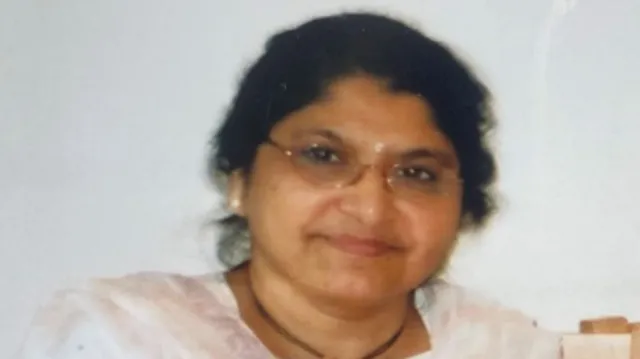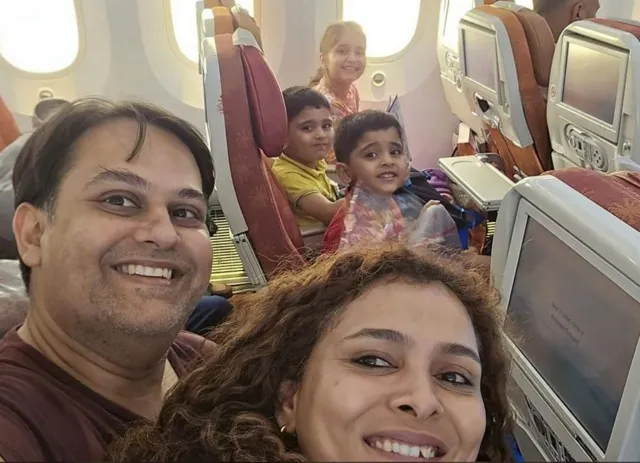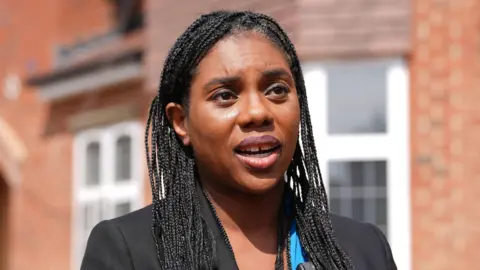Air India Crash: Victim’s Family Demands Answers on “Incomplete” Preliminary Report
The granddaughter of a victim of the tragic Air India Flight 171 crash, which claimed 260 lives, has voiced her deep distress over the preliminary investigation report, deeming it “incomplete.” Ria Patel, whose grandmother Manju Mahesh Patel, 79, was among the passengers on the Gatwick-bound plane, expressed that true peace and closure remain elusive until the root cause of the disaster is definitively established and accountability is assigned.
The crash occurred shortly after take-off in Ahmedabad on June 12th, sending shockwaves through the communities in both India and the UK, where 53 nationals were aboard the flight. A preliminary report released by India’s Aircraft Accident Investigation Bureau (AAIB) indicated that the fuel supply to the Boeing 787 Dreamliner’s engines was cut moments after departure. While this report offers some insight, Ms. Patel described reading the details as “quite heartbreaking,” particularly due to the inclusion of graphic images from the crash site.

“I can’t stop thinking about what my grandma’s final moments must have looked like,” Ms. Patel shared from her home in Buckinghamshire. Her grandmother had been in Ahmedabad for several months, engaged in charitable work at a local temple. Manju Mahesh Patel was eagerly anticipating her reunion with her four grandchildren in the UK, a reunion that had been 10 years in the making. “This was the chance to reconnect with her after 10 years,” Ms. Patel said, her voice filled with emotion. “Knowing that we won’t be able to see her again, it is really tough.”
The data retrieved from the aircraft’s black boxes suggests a critical sequence of events: both engines’ fuel control switches were moved to the “cut-off” position within a single second after takeoff. These switches are normally operated only upon landing or in dire emergency situations. The AAIB report did not explicitly state whether an emergency had been declared on board, leaving a critical question unanswered for the families.

Echoing Ms. Patel’s sentiments, Sameer Rafik, the cousin of victim Faizan Rafik, has also appealed for greater transparency. He urged the Indian government to release the cockpit audio recordings, stating, “Only after that will we then know what happened.” The absence of this crucial audio data leaves families like his in a state of prolonged uncertainty.
Dr. Mario Donadi, a friend of another victim, Dr. Prateek Joshi, expressed his frustration to BBC Radio 4’s Today programme, calling the initial findings a “huge slap in the face.” Dr. Joshi, along with his wife and three children, perished in the crash while en route back to the UK. Dr. Donadi questioned the profound loss of life and shattered dreams resulting from what appears to be a seemingly simple mechanical error. “How [can] something so trivial [as] a simple switch being deactivated lead to such a loss of life, of such huge dreams?” he lamented.

Ms. Patel acknowledged that knowing the cause of the crash cannot bring her grandmother back, but stressed the paramount importance of understanding the underlying reasons. “I feel like I can’t really be at peace with what’s happened, unless I understand where the accountability lies.” She emphasized that “clear actions” are necessary for the relatives of the victims to find a sense of justice after such a devastating loss. The AAIB’s detailed report is anticipated in approximately 12 months, and a UK Department for Transport spokesperson stated that the government would thoroughly review the findings and assess any required actions.
The absence of Manju Mahesh Patel, who used to call her granddaughter every weekend, has left a significant void. “She will be sorely missed. She was an amazing woman,” Ms. Patel concluded, her words a poignant testament to the enduring impact of her grandmother’s life and the ongoing quest for answers.



Post Comment